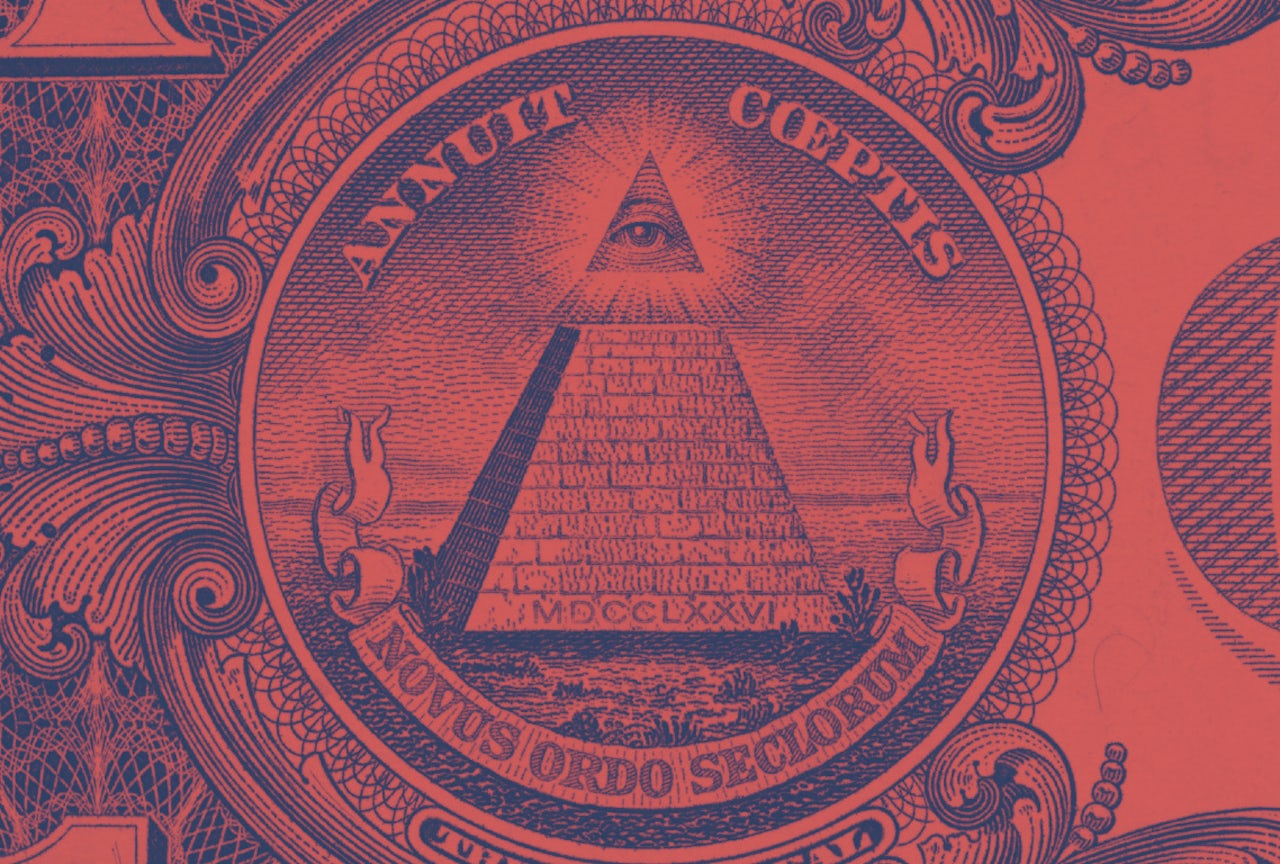In the days after the Parkland Shooting, the term “crisis actor” started circulating on Youtube, with one momentarily top-trending video claiming that survivors were actually coached performers planted by the left. Though the rumors were swiftly debunked, they weren’t anything new: ever since Newtown, pro-gun communities and conspiracists have been taunting survivors with claims of “staged” shootings, presumably because they don’t want to acknowledge that militarized weapons and lax gun laws are what allow these tragedies to keep happening.
After the shock of senseless violence settles, conspiracy theories often follow. They pop up during elections, following economic downturns, and in the midst of international conflict. Though the people who ascribe to them hail from all over the ideological spectrum, at their core, conspiracy theories are an attempt to explain the inner workings of the world around us. And psychologists are working to decipher why people believe them.
“A conspiracy is like chicken soup for the soul,” says Stephan Lewandowsky, Chair in Cognitive Psychology at the University of Bristol, who studies the spread of misinformation on topics like climate change and vaccinations. “It’s much easier for people to handle that than it is to think this is just a chaotic world.”
Studies have found that people who believe conspiracy theories tend to report greater feelings of social ostracism, to perceive themselves as possessing information that others do not have, and to overestimate the likelihood of co-occurring events. In American Conspiracy Theories, Joseph Parent and Joseph Uscinski, associate professor of Political Science at the University of Miami, identified a number of factors that predispose people to believing conspiracy theories: many, for example, have recently lost a job, or belong to a party that has fallen out of power. The throughline? Powerlessness.
“[Conspiracies] not only provide an explanation of self-perceived low status, but also provide a sense of belonging to an enlightened and superior in-group that sees through the lies of the conspirators and is not fooled like the rest of us,” says Christopher C. French, head of the Anomalistic Psychology Research Unit at the University of London.
Viewed through a psychological lens, conspiracy theories give us a look into the way we all process our anxieties, our politics, and our tendency to see what we want to see. We spoke to Lewandowsky, French, and Uscinski about the psychology behind three persistent theories — and why they’re so difficult to debunk.
Aside from the Parkland shooting crisis actor theory, there are still people who believe Sandy Hook was faked, or that the Las Vegas shooting was a deep-state coverup. Why do you think conspiracy theories often crop up after mass shootings?
Lewandowsky: For the people who oppose gun control, mass shootings are kind of inconvenient. It gets the public up in arms against guns — so [if I am against gun control,] what am I going to do? I’m going to downplay the mass shooting, and how can I do that? I can pretend those children at Sandy Hook are still alive, or that these students are crisis actors. Ironically, [conspiracy theories like these] provide a source of comfort. There is always a culprit you can blame it on — and that’s much better than saying there was a random psychopath who did a horrible thing because one, he’s a psychopath, and two, he’s entitled to buy himself a battery of machine guns.
Uscinski: Violence and tragedies are displayed prominently on the news, and that’s why. Everybody interprets information through the predispositions that they have, so if you and I get shown the exact same thing, you and I will come to very different conclusions about it.
French: One of the most important psychological factors here is what psychologists refer to as proportionality bias. We have a natural tendency to assume that big events must have big causes. Can Diana’s death in Paris really just be the result of reckless driving by a slightly tipsy driver? Was JFK really the victim of a lone gunman? Were seventeen students recently killed by one sad loner? For many people, their natural tendency is to assume that big tragedies must be the result of some big conspiracy.
One conspiracy claims that our world is controlled by a secret society of reptilian elites — half-human, half-lizard — that has supposedly been running the globe since ancient times. Why do people believe this stuff?
Lewandowsky: The paradox in conspiracy theorizing is that the conspirators, [whether they be] illuminati or climate scientists or the federal government — they are always all powerful. This dichotomy [all the power in the world in the hands of a few people] provides an explanation for what is going on in the world. The people who believe in that kind of stuff are usually disgruntled individuals who feel like they have failed and are resentful of others who are successful.
Uscinski: Beliefs like the reptilian elite — they poll really low, like 4% [of the population]. But in terms of this view of power, the people that believe these things tend to feel powerless, and [conspiracy] is one method of psychologically explaining that away. Maybe that feeling attaches to something we can measure — like they don’t make a lot of money, or they are on the outskirts of society — but sometimes not.
French: The idea that the world is ruled by secret groups, such as the Illuminati or shape-shifting alien lizards, is not endorsed by very many people overall. But the general idea that those in power are engaged in conspiracies and cover-ups is much more widely held than these crazy theories.
U.S. presidents are often at the center of conspiracy theories — and not too long ago, our current president made comments suggesting he ascribed to birtherism, a conspiracy theory that calls into question Obama’s birth certificate and citizenship. How do these bogus ideas gain traction?
French: We are all the victims of confirmatory bias; i.e., we notice and pay more attention to evidence that supports what we already believe or would like to be true, and ignore or dismiss evidence that appears to contradict such beliefs. The evidence very clearly shows that conspiracy theories about those in power are much more likely to be believed in by supporters of the opposition parties than the supporters of those in power. Thus Republican voters often endorsed many conspiracy theories about Obama that Democrats tended to dismiss as nonsense — and now the situation is reversed.
Lewandowsky: In the case of Obama, it was pretty obvious that this whole birtherism nonsense was about trying to delegitimize him as a president. The birth certificate was just a proxy for race, you know? “He is African and therefore not one of us.” Delegitimizing Obama was very convenient for his political opponents.
Uscinski: What we found over the last 120 years is that as power switches, feelings of powerlessness switch too, so whoever is in power is going to be the brunt of conspiracy theories, and whoever is out of power is going to use conspiracy theories. Given that the presidency is the most visible and unitary source of power in the country, that is what drives most of the domestic political conspiracy theorizing. Just go back the last 20 or so years, [and] you see this pattern play out almost perfectly. We saw when Bush was in power, it was, “Oh my god Bush, Cheney, Halliburton, Blackwater, war for oil.” Obama comes to power, and it’s, “Obama, communist, secret Muslim, fake birth certificate.”
At a time when reliable information is so readily accessible, why do people continue to believe conspiracy theories?
French: The nature of conspiracies is such that, for the true believer, they are non-falsifiable. Any evidence that appears to support the conspiracy, no matter how weak, is accepted. Any evidence that appears to contradict the conspiracy, no matter how strong, is rejected as being either misinformation or disinformation planted by the conspirators.
Lewandowsky: A conspiracy is something that you can invent that allows you to believe whatever it is you want, and ultimately, that’s what it is in all cases. If I invent a conspiracy that medical doctors made up this link between smoking and lung cancer, then I can keep smoking without having to worry, right? If I think that all these mass shootings are staged by crisis actors, then I can keep my machine gun and feel okay with that. A conspiracy theory is just a tool for me to feel better about something — usually myself — and to believe something for which there is no evidence.
French: One of the very worrying recent developments is the fact that the President of the United States actively encourages his followers to disbelieve traditional sources of reliable information — such as mainstream media and the scientific community — condemning any claims with which he disagrees as “fake news.” He has publicly stated his support for promoters of extreme conspiracies, such as the notorious Alex Jones. It is vitally important that we find effective means to counter the effects of beliefs in unfounded conspiracies. The consequences of not doing so could be very serious for us all.



